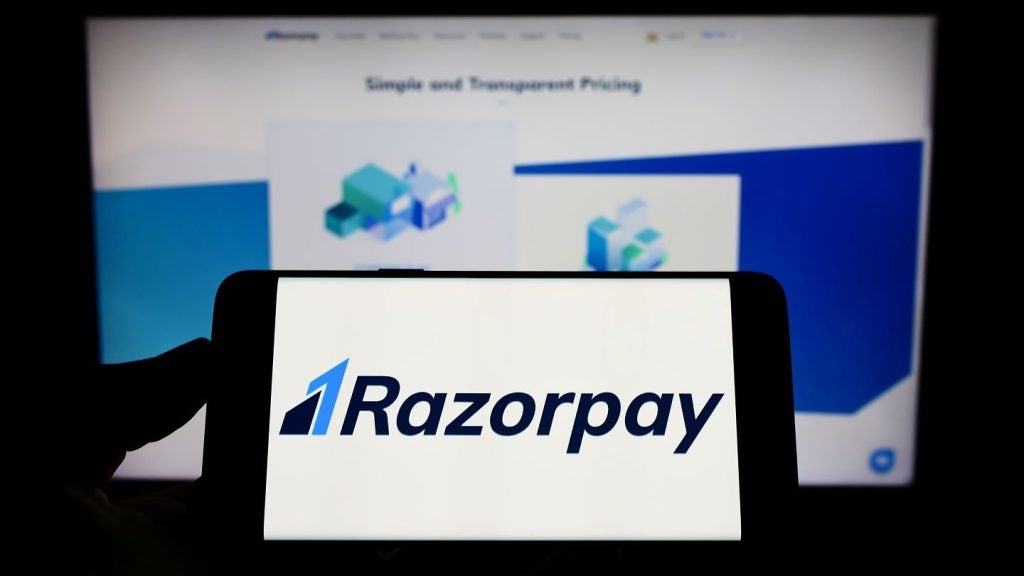
CGI has played a transformational role in the payments sector for over four decades with leading banks and banking partners relying on its software and experience every single day.
CGI laid out the design for Swift, the first cross-border payments network. It was also instrumental in the launch of CLS, which settles more than 50% of all FX transactions globally and delivers software that has powered more than one-third of all North American wire payments since 1984.
In advance of Sibos 2023, CGI’s Ainsley Ward, VP Payments Consulting Services at CGI, sat down with EPI editor Douglas Blakey to discuss the latest trends, challenges in payments.
Ward looks after CGI’s payment solutions and tells EPI that this will be the firm’s lead offering in what it is starting to build in its adaptive banking series.
“It’s essentially where we’ve been in the past with payments as a service. But we are building on top of that with more of the BPO offering. So, we are starting to do more on behalf of banks as a service provider.
“We know that more and more banks are struggling to keep up to date with the way the world is changing. And through our shared services and with our assistance, we will keep them up to date, so they can continue to compete in the full-service banking space.”

US Tariffs are shifting - will you react or anticipate?
Don’t let policy changes catch you off guard. Stay proactive with real-time data and expert analysis.
By GlobalDataCGI has been a key payments partner for many of the world’s largest payments banks for almost 50 years. Indeed, it can boast an average client relationship with key clients in the sector of around 35 years.
CGI in payments: working with 15 of the 30 G-SIBs
“We do some amazing stuff,” says Ward. It must be a minor irritation, though he is too polite to say so, that many banking partners are not always open about talking publicly about their most important third-party relationships and vendor partnerships.
But he can say, with understandable pride, that around 15 of the world’s 30 globally systemic banks (G-SIBs) are on CGI payments solution in one way or another.
Ward, is therefore, expertly placed to assess the technology preparedness of the world’s leading banks. And to comment on how they are prioritising their roadmap direction when it comes to optimising payments strategy.
He says that there is a mixed picture when one looks at technology within many banks. Crudely, it might be summarised as front-end: great. But the back-end is a work in progress. Indeed, Ward has been quoted in the past, referencing banks’ ‘technology debt’.
Technology Debt
“There’s the side that’s glossy and glowing and faces the banks client. So, all those front ends, the lovely e-banking, the mobile systems, and the electronic form capture, are all visual and pleasing to many. It’s great to see the banks’ front-end digitisation at work. However, what’s been clear, particularly in the payment space in the last couple of years as we’ve begun the global Swift ISO migration expansion and into the faster payments space, there are issues with the back-office systems needed to support it all. The technology that does the work in most cases is genuinely pretty old, pretty rusty, full of evolved spaghetti and is tied to many, tiny applications that only do just a dribble of a job.
“For example, they may have been built to fix a specific problem, say when the Swift mandatories come out each year. As a result, banks are looking from a technology debt perspective at the unbundling of all of it. For example, when one of my bank clients looked at migrating off our legacy platform to our latest payment solution, they realised that it was connected to over 150 different applications. Accordingly, to move that migration forward, they must work out which of those 150 applications they keep and which to remove with their new application. By continuing with technology debt, banks have to go through that whole process of taking things apart, in order to build back better.”
Regional variations
Each year, CGI conducts its voice of the client analysis and reaches out to its client base to discuss where their technology futures are going, what it is they’re looking at. Ward notes that public cloud adoption by banks in the US, is growing at a much faster rate than in Europe. This is primarily because the regulator tends to be more cautious in Europe.
“That’s why we have the Schrems II regulation, which is aligned to the fact that the major cloud providers are owned by US companies, and therefore potentially subject to the subpoenaing of data should it be wished. And not everyone has worked out how to meet that challenge. Thankfully, CGI has done so, and we have clients live on our payment solution. So, all that confidential data is live on public cloud, and as our clients have talked about it openly, I’m able to do so.”
Further change is happening in Europe with The Digital Operational Resilience Act (DORA) being applied from January 2025 and aims to further harmonise key digital operational resilience for EU financial institutions. Ward says this will also impact banks’ cloud strategy.
“I think there’s also been a set of banks, which were really aligned to doing stuff themselves. So, one of the major Danish banks, for example, I work with, undertake all their development in house. And there’s a lot of the banking groups in Europe that are very much technical development shops. Therefore, letting go of something as important as where your confidential data is stored, is a major mind shift. They really need to change a lot of minds and opinions within their organisation in order to move core platforms to cloud. They need to think ‘cloud-first’.”
APAC banks move towards leveraging external development and services
Elsewhere, Ward is upbeat about the potential for new business opportunities in Asia Pacific. CGI currently works with large banks and organizations throughout the region, like ANZ and Westpac, but there is scope for new business wins.
He notes a shift in many Asian banks’ strategies as they move towards leveraging external development and services, like CGI’s industry-leading payments as a service offering.
“There’s definitely a big uptick in movement and probably in the last 12 months, primarily with the shift forwards in faster real time payments. But also, again, some of the underpinnings that have been exposed are due to the global ISO migration. It’s one of those things that have been really, really, difficult, primarily because of the massive change in database structure. And the sort of ability to shift where you are today to what you need to have in place to be an ISO processing bank.”
As a Canadian-headquartered IT and business consulting services firm, albeit one of the biggest in the world, with over 91,000 consultants and professionals based across 400 locations, CGI will be on home turf at Sibos. CGI will demonstrate how its business consulting focuses on ways to improve business agility and manage change. It will show how its systems integration capabilities advance clients’ IT modernisation efforts and demonstrate how its managed IT and business process services help clients mitigate cost pressures while driving more value from their technology supply chains.
Adaptive Payments as a Service
In terms of Ward’s priorities for Sibos, he will stress to clients the challenges of regulatory, technology and demographic change. And the resultant increasing pressure on banks’ back-office infrastructure.
“What we are looking to do with adaptive banking services is to release and relieve that pressure for banks that don’t necessarily have the resources to keep on changing at the pace that the world is demanding.”
He has a strong hand to play at Sibos. He can highlight the change to CGI’s services from offering its payments service, application management and infrastructure management, to adding business process outsourcing on top of that.
“This creates a fully layered service. We’re calling it adaptive payments as a service, primarily because it allows a bank to pick and choose the bits they want. So, they may already have their cloud strategy in place, they may already have those contracts. They don’t have to take infrastructure from us. But they can get the right application and the services bolted on top of that.
“Likewise, they may want to look after the application themselves, but they need a team to come and help supplement their operations to make those more efficient. So, it’s about picking and choosing the services that you want to fill the gaps where you have them to make sure you can keep on providing those sorts of turnkey services for your clients.”
PaaS: a response to key challenges facing banks today
Ward highlights four key elements to CGI’s payments-as-a-service offering: compliance, agility, value-add and client services, and lower and more flexible costs.
With a deluge of regulation continuing, compliance requirements can eat up to 90% of a bank’s budget. Maintaining pace with DORA, GPDR, PSD3 and Schrem regulations requires skills and focus best shared. Meantime, continuing to deliver payment services aligned to evolving market needs in shorter timelines requires an agile delivery organisation and implementation of DevSecOps.
CGI’s strength in optimising value-add and client services is accentuated by the market trend towards payments becoming more commoditised. As a result, the value to retail, corporate and third-party clients is in focused, tailored services aligned to their unique needs.
On costs, margin erosion is being driven by regulation and market changes. While continual investments in hardware, software and maintenance of payments platform are essential, CGI acknowledges the need to deliver more for less.
Ward adds: “Banks around the world are looking to solve the same set of problems. One of the answers being highlighted by analysts such as McKinsey and Gartner is to outsource payments infrastructure to PaaS providers.
“Unlike traditional SaaS, PaaS can be personalised to the client and so offers a more attractive offer than ‘one-size-fits-all’ approaches. CGI has invested over the past few years in creating a service aligned with NA and EU norms, and existing client references. Over the next few years, this will potentially be used to capture significant client business as need accelerates.”
Market potential
On 20 July 2023, FedNow launched in the US. The instant payment service developed by the Federal Reserve for depository institutions in the US allows individuals and businesses to send and receive money. CGI is well placed to tap into the market potential offered by around 4,000 US banks wanting to connect.
In Europe, the market is also encouraging for market leaders such as CGI, with the EU mandating all Eurozone banks, circa 2,500 institutions, to connect to SEPA Instant in the next two years.
And this is just market growth in the real-time space.
“There are changes in payment systems all over the world. We know that there is a large number of banks that need support. We’ve seen from our voice of the client analysis that there is a big increase in the number of banks that are looking to use managed services over the next three years. Take midsize banks just for starters. That segment of the market was running at about 37%, in our survey last year. That has now risen to 54% of mid-tier banks that are looking for these managed services.
‘Sea change in attitude’
“We know that there is a sea change in attitude. We know that there’s viability in the market. And there’s a need from a regulatory perspective to make sure things keep on moving forwards. I don’t think the European Commission will be as slow to react with regulation with instant as they were with the initial SEPA rollout. If you remember, back in 2008/2009, they finally had to issue a mandate so that everybody was reachable by the SEPA schemes.
In the end, the regulators kind of realised that the banking market wasn’t going to migrate to something that wasn’t mandatory without a bit of a push. And they’re seeing the same with instant. As a result, they’ve already started to put the legislation in place to make that push.
“And what that generates is a lot of movement in the banking space. It means banks having to do things which are difficult. The vast majority of banks are not yet prepared for 24/7 operations primarily because they have core infrastructure that doesn’t run 24/7. They still have to close it down for a few hours each night to clear the data out and set it up for the next day’s trading. And that makes real time payments pretty difficult for some of these banks. And that’s just one obstacle.”
The CGI solution is easy to summarise, and with its ongoing success in demonstrating successful client deployments, explains why Ward can look ahead to Sibos and well beyond with optimism.
“CGI will take some of that operational burden from bank clients, to provide a service that allows them to process these payments 24/7 and that has a team that keeps track of the infrastructure, the application doing these operations, even in an out of hours scenario and make sure that they’re covered. “That way, banks can continue to deliver to the mandates and deliver to the expectation of their client base, while being able to continue to manage their business in a way that they’ve been able to in the past.
Increasing importance of data privacy
While digital transformation is helping banks overcome challenges and embrace new opportunities to serve their customers, it also increases privacy concerns, making data protection an essential business strategy.
Data privacy is an increasing priority—not only to build trust with all stakeholders, including customers, employees and suppliers but also to keep pace with a mounting set of privacy regulations worldwide.
“Data privacy is becoming more and more forefront in not just the regulator’s minds, but also in consumers’ minds. We’ve seen a couple of recent significant breaches in the UK, and that’s starting to make people think about where they put their data and what they have faith in. Banks are able to move away from this legacy mainframe infrastructure, or data centre-based applications and push into modern secure infrastructure that is managed by expert teams that really understand data security. And teams that have a track record of doing that with government, health and space data around the world – which is exactly the space that CGI operates in. Essentially it’s not just pooling of application and infrastructure services, but all of the data security and privacy that is woven through it meaning that better data protection is built in to better systems.”
CGI and AI
In July, CGI announced the planned investment of $1bn over the next three years to support the continued expansion of its Artificial Intelligence services and solutions in partnership with clients seeking to responsibly move from experimentation to implementation while accelerating time-to-value from new AI technologies.
CGI’s investment plans will include expansion of the company’s AI-related consulting services, responsible and ethical-use delivery platforms and accelerators, intellectual property AI-enablement, global employee hiring and training, and operational excellence efficiencies.
Ward stresses that CGI is also accelerating its investments in CGI PulseAI, a hyper-automation, conversational AI, and decision engine platform that enables clients to drive growth and efficiency by unlocking the value of enterprise data and business processes. The platform—already in use within CGI’s own operations—is a proprietary platform built to integrate seamlessly with any third-party partner tooling. Importantly, PulseAI already includes over 35 AI models that are pre-trained to deliver results with an over 90% accuracy rate.
“So already in our payments roadmap, we’re looking at leveraging AI to improve efficiency and straight through processing in the system. We are talking about automated enrichment, automated problem solving, which has been sort of the holy grail of the payment world for many years, particularly in the Swift space. How do you get rid of all those inconsistencies that hold payments up or that mean you have to do manual operations on them.”
AI tools to benefit more than just the G-SIBs
AI tools will be deployed, for example, to ensure that the flow of corporate money is more rapid and more accurate. And Ward highlights that this in one area where there is potential benefit to not just the G-SIBs and major tier one banks.
“G-SIBs have always had the resources that ensures, if there is an issue, if the payments don’t go through, they make sure they’re fixed. They’ve always got the manpower to do it, but for tier two banks, this is the place where they struggle because it requires people and resources, which are the things that they’re often short of.
“They become more and more reliant on great technology and hopefully, with some of the tools we’re putting in place and offering to them as a service, we can remove a lot of their current issues and a lot of the cost that they incur, so solving some of those problems for them.”
Ainsley Ward is an industry thought leader and business development lead for CGI’s Payments Solutions. Previously he worked on payment modernisation and open banking in Canada and as an SME in Belgium. Bringing experience from working with banks on every continent, Ainsley is well versed in the demands of payment market modernisation, finding opportunities from mandatory change, and guiding banks to better outcomes, representing many of his clients in industry working groups and committees including with the EPC and ECB. He is currently co-chair of the UK’s Digital Pound Foundation Payments Working Group.
Prior to CGI, Ainsley worked with world-leading companies running Management Consulting at FIS (Clear2Pay), as 2FA Product Manager at MasterCard, and Senior Advisor to European banks with ESBG.







